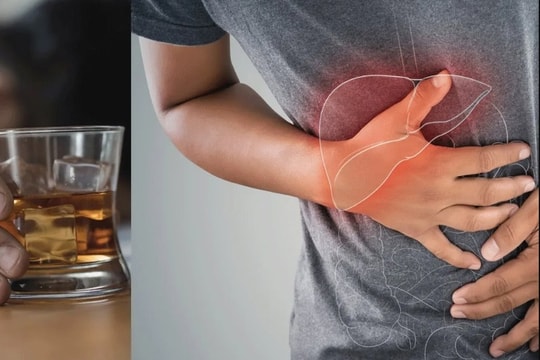Stomach ache, indigestion when traveling, what to do?
Stomach aches and indigestion are common when traveling or eating strange foods. What should you do if you have a stomach ache or indigestion?
Stomach aches and indigestion are common when traveling.
Stomach pain and digestive disorders occur in all ages, due to abnormal activity of the digestive system leading to damage to the stomach wall. This phenomenon makes many people feel tired and in the long run will affect health.
There are many causes of digestive disorders, especially in the hot season, due to hot weather and humid temperatures creating conditions for bacteria and viruses to grow and multiply, food is easily spoiled, spoiled, moldy, etc.
Food left for a long time, not well preserved, or eating unsanitary street food can easily lead to infection with digestive bacteria found in food and ice.
Thus, not only food but also drinking water can be the cause of digestive disorders and even food poisoning.
 |
| Stomach ache is the first symptom of digestive disorders that anyone can experience. |
During long holidays, the number of people traveling and the need for eating in crowded places such as restaurants and tourist areas will increase. Therefore, to serve the needs, food suppliers will have to stock up on food... if hygiene and proper preservation are not ensured, unsafe food will cause digestive disorders for the eater.
In addition, when people party during the holidays, they will drink alcohol. If they drink too much, they will lose a large amount of digestive enzymes, unbalance the intestinal microflora, damage the intestinal mucosa, leading to irritable bowel syndrome. Patients often experience symptoms of digestive disorders such as abdominal pain, bloating, flatulence, loose stools, etc.
Another issue that few people pay attention to is that psychological stress can also affect digestive disorders. If you change your residence, move a lot, or worry, you may be at risk of causing digestive disorders. In addition, a lot of stress also causes poor blood circulation, leading to a decrease in stomach contractions, causing food to stagnate, causing indigestion and bloating.
Symptoms of abdominal pain and indigestion
When suffering from digestive disorders, there will be the following symptoms:
- Symptoms of abdominal pain:
This is the first sign of digestive disorders that anyone can experience. The pain usually appears in the lower or upper abdomen depending on the location of the injury. The pain is especially duller after eating a full meal or eating spicy food.
- Appearance of bowel movements:
When digestive disorders cause the excretory function of the digestive system to change abnormally, leading to the kidneys not working properly, the patient will feel the urge to defecate. There are also cases of diarrhea or constipation, and after a full meal, this sign is clearly shown.
- Symptoms of indigestion and bloating:
When suffering from digestive disorders, most patients have symptoms of bloating, indigestion, and a feeling of not being hungry because undigested food is still stagnant in the intestines.
In more severe cases, if contaminated food or water is eaten, the patient's digestive system will be attacked, causing digestive disorders and food poisoning. Among them, diarrhea caused by e.coli, Shigella or amoebic dysentery is common with typical symptoms such as abdominal cramps, acute diarrhea, and even many cases of fever, vomiting, dehydration, electrolyte imbalance, bloody stools, etc.
If symptoms appear dramatically or last for a long time, it will increase the risk of dangerous complications such as cardiovascular collapse, kidney failure, electrolyte disturbances, colitis, enteritis, colorectal cancer, irritable bowel syndrome...
What to do when having digestive disorders?
When there are signs of digestive disorders, it is necessary to consider the cause to eliminate and have a method to overcome. Treatment of digestive disorders includes lifestyle changes and medication. Specifically, the patient needs to rest and drink plenty of water. Priority should be given to eating foods that are easy to digest and beneficial for the digestive system. Avoid foods containing grease, hot spices, high acidity, raw food, etc.
If you are worried, you need to go to the nearest medical facility so that doctors can choose the right medication to relieve the symptoms. For young children, parents need to pay attention to the condition of diarrhea many times a day, dry lips, dehydration... need to give the child rehydration and take them to the nearest medical facility. If the digestive disorder is caused by underlying diseases, depending on the doctor's instructions, the patient will be given appropriate medication.
To prevent stomachaches and digestive disorders while traveling, you need to pay attention to your diet and healthy lifestyle. Choose places to eat that ensure hygiene and food safety. You need to eat cooked food, boil water, cover food, avoid dust, limit the use of food sold on the roadside... will help prevent this situation.
Do not drink too much alcohol, limit sour and spicy foods... Washing your hands before eating is also a good habit to prevent digestive disorders and even food poisoning.




